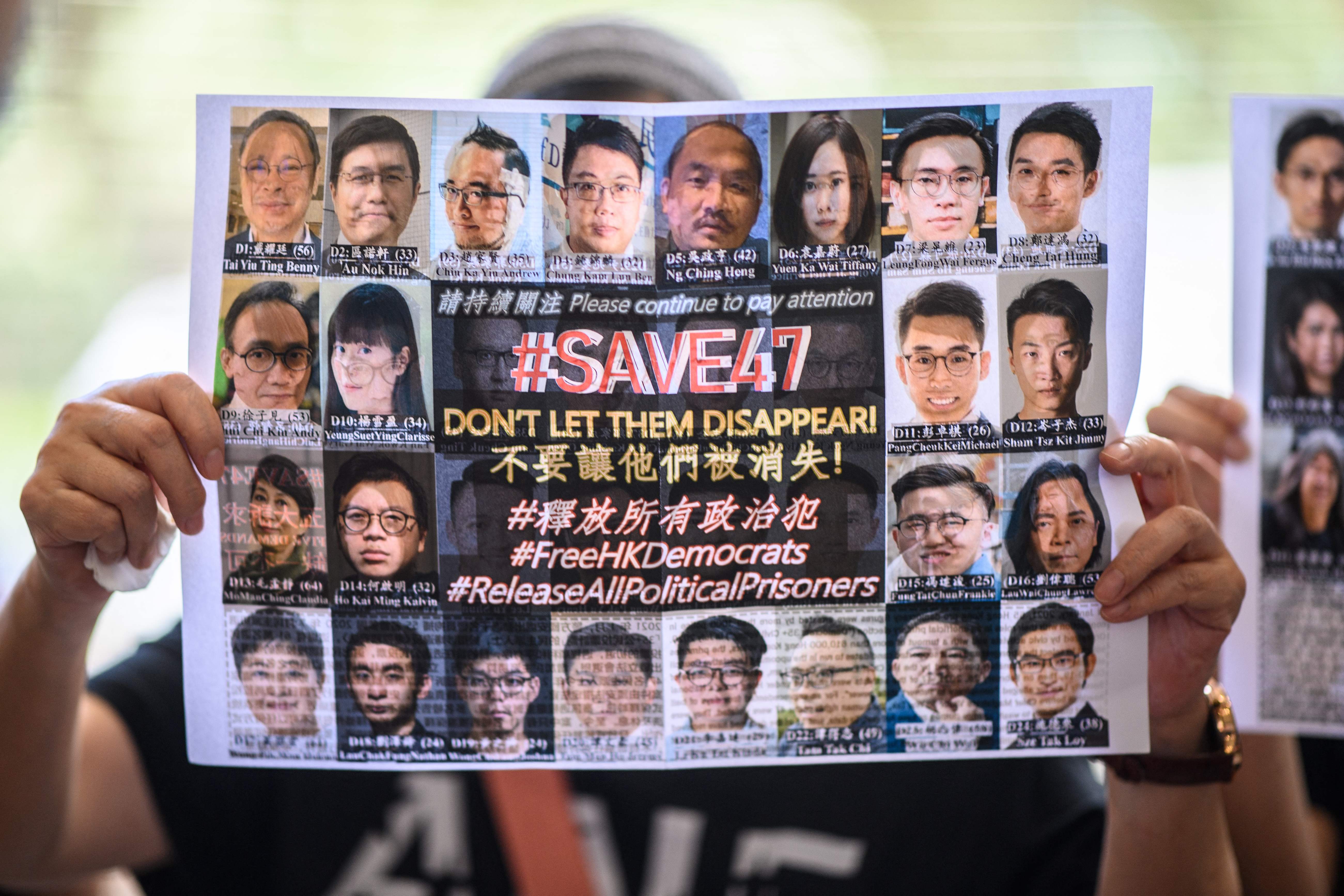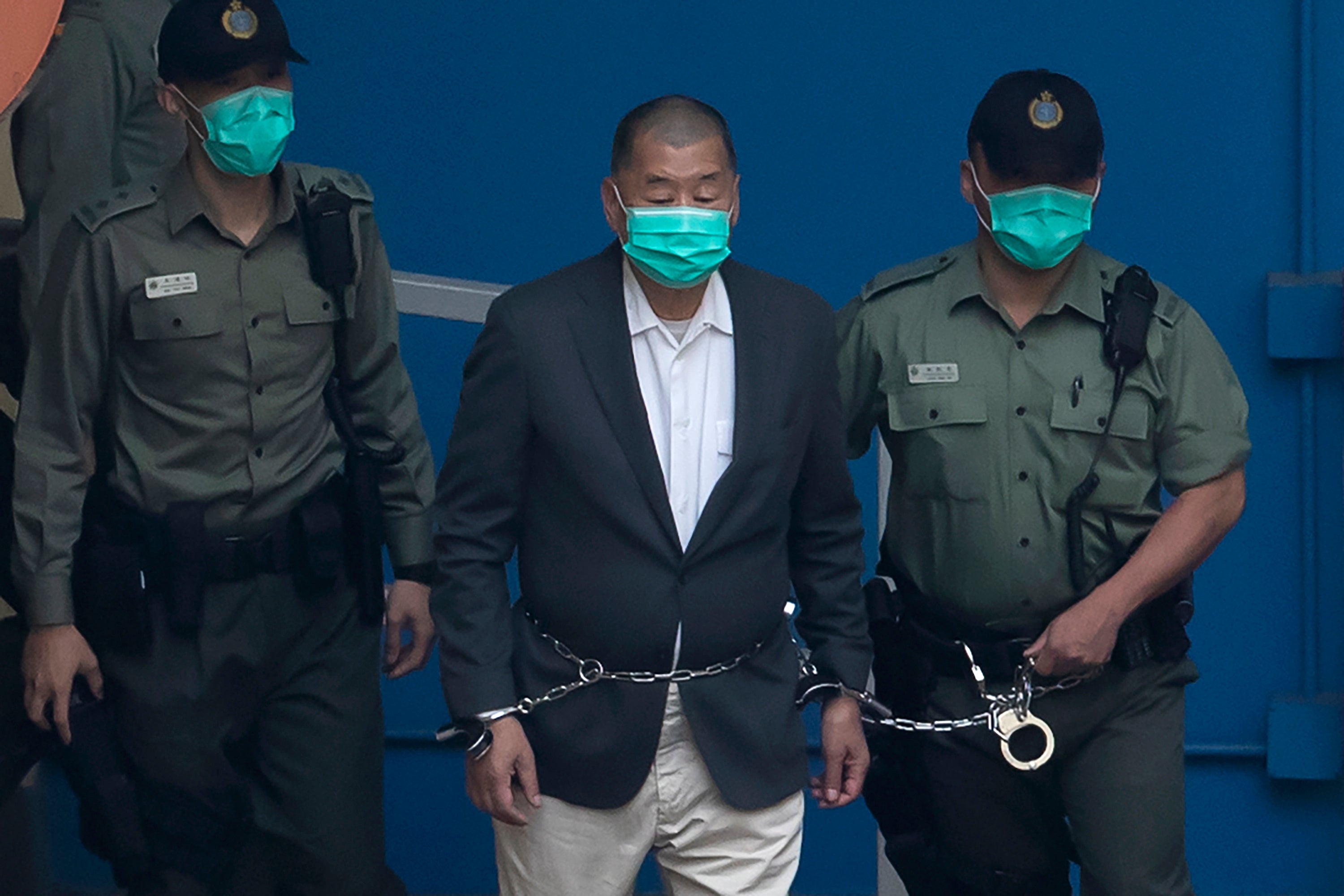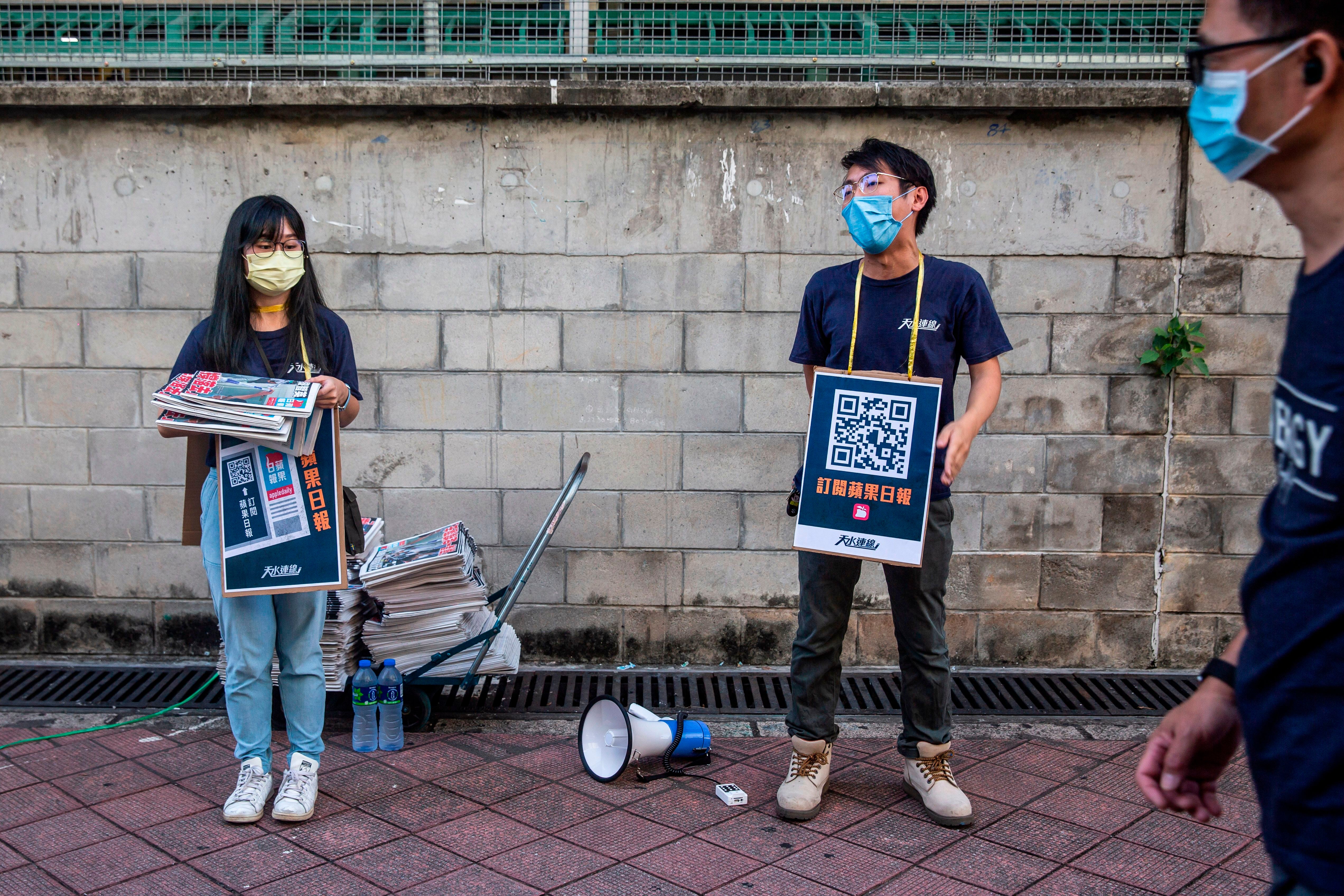Hong Kong sees another exodus of pro-democracy politicians as the government’s crackdown intensifies
The Hong Kong government has announced district councillors are now required to take part in an oath-taking ceremony, causing many to resign or flee, writes William Yang


Michael Mo didn’t think the day would come so soon, but last week, the 35-year-old pro-democracy district councillor from Hong Kong was forced to pack two suitcases, buy a plane ticket to London and say a rushed goodbye to his family.
His departure from Hong Kong, his hometown, which has seen such dramatic changes over the last 12 months, seems inevitable. Since the Hong Kong government announced that it would now require all district councillors in the city to take part in an oath-taking ceremony, more than 200 of his pro-democracy colleagues have resigned.
The ceremony requires individuals to pledge allegiance to the city and to uphold the Basic Law, as one of the provisions in the new, far-reaching National Security Law. The oath-taking scheme is believed to be part of the Hong Kong government’s plan to force out hundreds of pro-democracy district councillors in the city.
“At first I thought I would be safe because I didn’t participate in the legislative council primary organised by the pro-democracy camp last year, but when top government officials began to suggest that anyone who had advocated for sanctions against the Hong Kong and Chinese government would be disqualified, I realised I would be targeted too,” he tells The Independent.
The mass-purge of Hong Kong’s district council, in which the pro-democracy camp holds around 80 per cent of the seats, is part of a wider crackdown on civil society in the name of national security.
The Hong Kong government recently promoted two career police officers who were viewed as instrumental to the enforcement of the National Security Law (NSL) to key government positions, and dozens of prominent pro-democracy figures and politicians have been detained and sentenced under different crimes since last year.
First they went after high-profile figures like Jimmy Lai, then they shut down Apple Daily and now they are targeting district councillors. I’m quite sure their next targets are the professional groups and civil society as a whole
Now, the government’s crackdown has reached the district councillors, who traditionally play a more advisory role in the semi-autonomous city. “The district council doesn’t affect that much of the political system in Hong Kong, but the landslide victory for the pro-democracy camp in the district council election in November 2019 was viewed as part of civil society’s ‘subversive scheme’ in the eyes of the Chinese government,” Mo says.
He points out that it’s common for pro-democracy activists and politicians to be critical of the government at some point in their career, but after the implementation of the NSL, the government has been determined to “seek revenge” on these pro-democracy figures based on what they have done before the law was introduced, even though the government claims the law is not retroactive.
“To me, the logic is that if you are disqualified without an explanation, you could indeed be disqualified for reasons related to the NSL, and if that’s the case, there is a high probability that you would be subjected to investigation under the law, which forces you to hand in your travel documents and bans you from leaving Hong Kong in most cases,” Mo says.
Those who stay behind
While Mo chooses to leave Hong Kong for his personal safety, other district councillors who have resigned say there are still projects that they hope to see through in their neighborhoods.
“When the government tries to break us up and make us feel alone, it’s important for me to keep [the councillors] together and let them know that we still have each other,” says a resigned district councillor who prefers not to be named for fear of retribution. “We are transforming my office into a community space and there are still some local campaigns that I would like to work together with them.”
He claims the government’s attempt to wipe out all opposition district councillors through the oath-taking scheme reflects how threatened they feel by anyone who holds a different opinion.
“Starting with the mass arrest of the 47 pro-democracy politicians who participated in the primary in 2020, and the forced closure of Apple Daily, it’s the destined path for the government to crack down on anyone who has the guts to say something against them,” says the district councilor. “It seems like the government is no longer rational and the only goal they have is to keep Hong Kong people silent.”

Last week, Hong Kong’s chief executive Carrie Lam said the mass-resignation of district councillors will not affect the rollout of the oath-taking legislation. “There are people who say, if you continue with this exercise, there will be a loss of a large number of district councillors, which will in turn affect the operation of the district councils,” she said. “That factor is not to be considered by us because we have to implement the law.”
While the Hong Kong government will hold the legislative council election in December, the district councillor says most Hong Kong people know there are no real “democratic” elections anymore. “Everyone knows that the district council election in 2019 was the last democratic election in Hong Kong,” the person says. “It’s no longer up to the constituents to decide who is qualified to represent their opinions.”
‘We are in the middle of the government’s crackdown on civil society’
As the government seems determined to execute the oath-taking legislation, Mo thinks the purge of the district council is only the middle part of Beijing’s overall plan to dismantle Hong Kong’s civil society. “If last year’s enactment of the NSL is the beginning of the crackdown, what’s happening now is the middle of the process,” he told The Independent.
“First they went after high-profile figures like Jimmy Lai, then they shut down Apple Daily and now they are targeting district councillors. I’m quite sure their next targets are the professional groups and civil society as a whole,” he added.
Following the mass-resignation of pro-democracy district councillors, several pro-democracy political parties also face an uncertain future as they try to figure out a path to survive the government’s onslaught against opposition forces.

“I don’t think pro-democracy parties in Hong Kong can stand a chance in future elections anymore, because the path is effectively barred by the vetting committee recently established by the government, which will review the legitimacy of candidates in all elections,” Mo says.
He thinks that even if pro-democracy parties try to shift their focus to the non-political arms of their operations, it’s hard to guarantee that the government will stop putting pressure on them. “I do think the government will go after these parties. If not now, then maybe in a year or two. It’s an effective silencing of the whole civil society mechanism in Hong Kong.”
For now, Mo says he will focus on securing his status in the UK and he hopes to contribute to the diaspora community in there. “I might try to help raise our profile in the UK as it’s important to strengthen our voice.”
Join our commenting forum
Join thought-provoking conversations, follow other Independent readers and see their replies
Comments